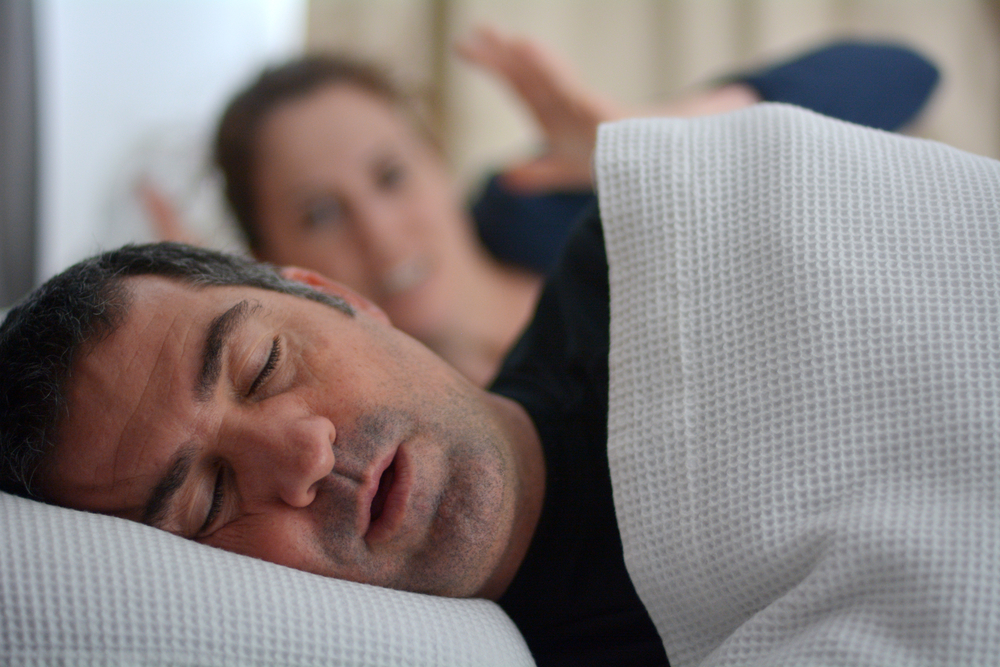
Written by Kylie Lucas, Pharmacist.
Do you snore?
Do you feel like you toss and turn during the night, or feel a sensation of gasping or choking?
Do you wake up feeling less than refreshed, and experience excessive daytime sleepiness?
If you answered ‘yes’ to one or more of the above questions, you might be showing signs of sleep apnoea.
What is sleep apnoea?
Put simply, sleep apnoea is when a person has episodes where they stop breathing during their sleep, usually due to their throat becoming partly or fully blocked. This is also known as ‘obstructive sleep apnoea’.
The person is often unaware of their pauses in breathing, which can last for a few seconds to over a minute until the brain responds and startles them into taking another breath. However, they will wake up feeling fatigued from the resulting broken sleep. In addition, their sleeping partner will usually notice the snoring and irregular breathing pattern!
Why does it matter if I have sleep apnoea?
Good-quality sleep is vital for our body to function at its best, so people with sleep apnoea will often feel overly tired and possibly moody or grumpy. Daytime sleepiness and difficulty concentrating can increase the risk of workplace or road accidents.
If left untreated, sleep apnoea is a significant risk factor for a range of medical conditions. This includes high blood pressure, heart disease, diabetes, stroke, chronic headaches and depression, to name a few.
What can I do if I think I have this condition?
See your doctor if these symptoms sound like you. Sleep apnoea is usually diagnosed after a “sleep study” either within a sleep clinic or at home. This involves wearing monitoring equipment to measure your sleep quality including your breathing pattern and oxygen levels. Some pharmacies also offer services to assist you in accessing a sleep study.
How is sleep apnoea treated?
If you do have sleep apnoea, treatment options can vary depending on the severity of the condition.
Sleeping on your side may help in mild cases. Lifestyle modifications may also be recommended, including maintaining a healthy weight, quitting smoking and avoiding alcohol in the evenings to help decrease the frequency and severity of apnoeas.
People who experience ongoing nasal blockage or swollen tonsils/adenoids may benefit from having these concerns treated, in order to keep the airways more open. Some medications such as sleeping tablets or other sedatives may worsen your sleep apnoea so speak to your pharmacist if you think this may apply to you.
Moderate to severe sleep apnoea is usually best managed by specially fitted mouthguards or splints, or the use of a CPAP machine, which stands for Continuous Positive Airway Pressure. These machines work by pushing air into the upper airways, thus keeping it more open. Whilst this therapy can take some getting used to, there are various options available and most individuals report a marked improvement in their quality of sleep and the way they feel the next day. And who would say no to a better, healthier night’s sleep?
This post was written by Kylie Lucas. Kylie has been a pharmacist for over 10 years and works in a country town pharmacy in the south west of Western Australia. She lives on a farm with her husband, daughter and lots of pet animals.
These Stories on News
Suite 2 Level 7, 500 Bourke Street
Melbourne, Victoria 3000
Australia
Email us: support@medadvisor.com.au
MedAdvisor is an affiliate member of the World Pharmacy Council.
No Comments Yet
Let us know what you think